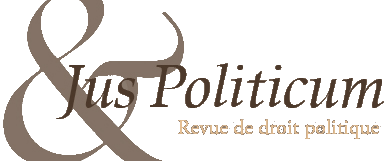Le système de gouvernement de Vichy à la lumière de la pratique institutionnelle
Le régime de Vichy (1940-1944) évoque pour tout un chacun la dictature, la défaite française, la grande scission du peuple français entre résistance et collaboration. Il est dans les esprits cette parenthèse autoritaire qui a suspendu l’ère républicaine. Le visage du Maréchal Pétain y est inévitablement associé car il se présente comme le despote qui a concentré tous les pouvoirs de l’Etat entre ses mains. Une telle représentation du régime de Vichy est-elle fidèle à la réalité ? Comment le pouvoir était-il véritablement distribué et exercé de 1940 à 1944 ? Pétain était-il influencé ? A-t-il toujours exercé le même pouvoir ? Quelle a été l’étendue des compétences de Laval ? L’occupant a-t-il détenu une emprise sur le gouvernement de Vichy ? Cet article - dont l’objet est l’étude du système de gouvernement de Vichy aux travers des archives d’époque - apporte des éléments de réponse à l’ensemble de ces questions.
The Vichy regime (1940-1944) evokes for everyone the dictatorship, the French defeat, the great split of the French people between resistance and collaboration. It is, in everyone’s spirits, this authoritarian parenthesis which suspended the republican era. The face of Marshal Petain is inevitably associated with it because he presents himself as the despot who has concentrated all the powers of the state in his hands. Is such a representation of the Vichy regime as dictatorship of Marshal Pétain true to reality? How was power really distributed and exercised from 1940 to 1944? Was Petain influenced? Has he always exercised the same power? What was the extent of Laval's skills? Did the occupier hold a grip on the Vichy government? This article - whose object is the study of the Vichy system of government through period archives - provides elements of answer to all these questions.Carl Joachim Friedrich sees the individual political freedom as secondary to the community political freedom, for the nature of human being is to belong to one or several communities. But political freedom is crucial, it’s the power engine of the stability of any political order. A political order without freedom of participation and freedom of political creation can not last. This is the key of a comprehensive understanding of totalitarian regimes in which community freedoms have precedence over individual freedoms.
« Le système de gouvernement de Vichy à la lumière de la pratique institutionnelle », Mémoire de Master 2 Recherche, « Droit public approfondi », Université Panthéon-Assas, sous la direction d'Olivier Beaud, juin 2018, par Annette De Moura, consultable et téléchargeable ICI.
Pour citer cet article :
Annette De Moura« Le système de gouvernement de Vichy à la lumière de la pratique institutionnelle », Jus Politicum, n°22 [https://juspoliticum.com/articles/Le-systeme-de-gouvernement-de-Vichy-a-la-lumiere-de-la-pratique-institutionnelle]

